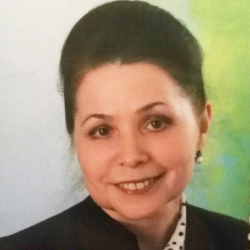Просмотр содержимого документа
«Презентация к уроку по английскому языку в 8 классе по теме "Animals in the Air"»

Great Minds
Spotlight 8, Module 3a
Irina Averkieva

What do these 3 things have in common?
1. They are Russian inventions .
изобретения
изобретать
2 . They were invent ed by the Russian inventors.
изобретатели

Do you know the inventor’s name of the radio?
Alexander Popov (1859-1906) was a Russian scientist who invented the first radio in 1895.

Do you know the inventor’s name of the first TV?
Vladimir Zvorykin (1888-1982) invented the first TV and electronic microscope.

Do you know the inventor’s name of the space rockets?
Sergei Korolev (1907-1966) was the inventor of the first space rockets.

What is the topic of our lesson?
Great inventions?
Great inventors?
Great Minds

Read, translate and remember!

Do you know the inventor of the first hot-air-balloon?
Joseph Montgolfier (1740-1810) was a French inventor. He invented the first hot-air-balloon with the help of his brother.

Translate the words
прийти к заключению
- come to the conclusion
- lift
- capture
- experiments
- present
- safe and sound
- float
- straw
поднимать
ловить
опыты
представить
целый и невредимый
плыть по воздуху
солома

Match the synonyms
- come to the conclusion
- lift
- capture
- experiments
- present
- safe and sound
- float
- straw
show
decide
tests
catch
not in danger
raise
dry grass
fly

Listen, read and be ready to discuss the text
“ Animals in the air”

Answer the questions
- Who invented the first hot-air-balloon?
- When and where was it invented?
- Who were the first passengers of the hot-air-balloon?
- Who watched the first flight?
- Was it a success?

Choose the correct answers
- Ex. 2 p.43 – work in pairs
1.
2 .
3.
4.
5.
c
a
a
c
c

Read and translate
Fields of science
- Natural Science – is the study of natural phenomena.
2. Social Science – is the study of the behaviour of human beings and societies.
3. Applied science – is the application of scientific research to human needs

Fill in the table using the words from the box
Natural science
Social science
Biology
Applied science
History
Computer Science
Chemistry, Psychology, Education, Economics, Physics, Earth Science, Politics, Geography, Engineering, Ecology, Sociology, Management, Health Science, Astronomy.

Complete the sentences
- I’m interested in … science.
- My favourite subjects are …

Which subject do people study?
- Maria studies the function of the human body.
- Adam studies the way computers work.
- Helen studies the planets and stars.
- James studies the way governments work.
- Rose studies the reasons for people’s behaviour.
- Alana studies the events of the past.

Your homework











































